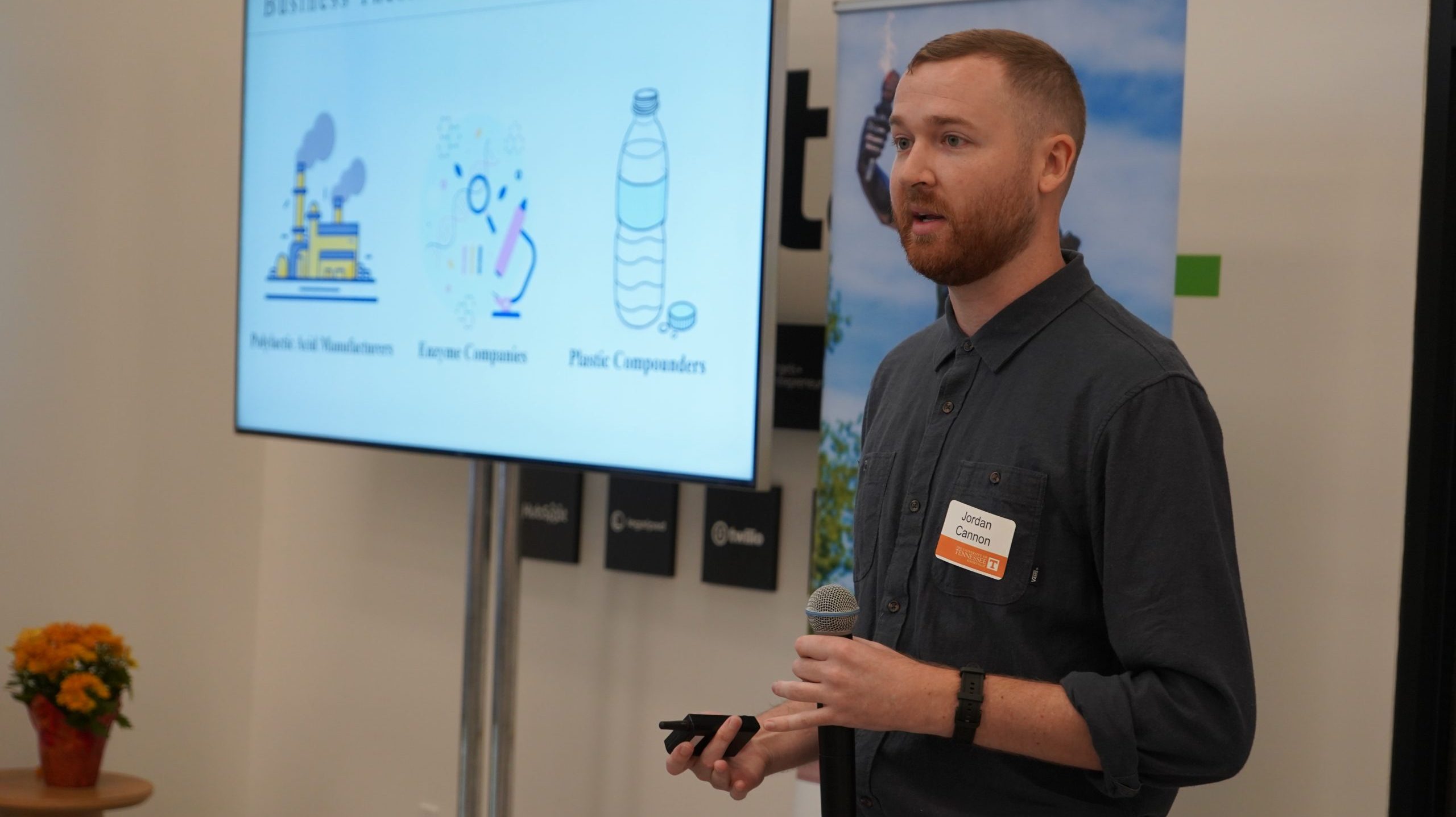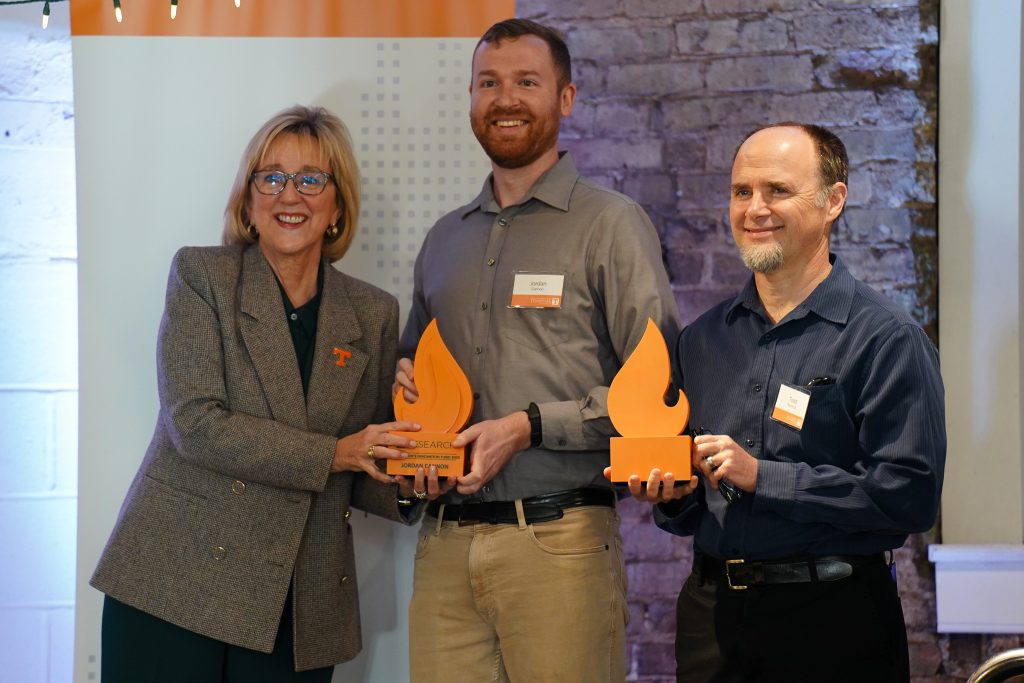
Enhancing biodegradability is the focus of Circular Biosciences
The start-up is one of the members of the newest cohort of the "Innovation Crossroads" program at ORNL.
Imagine embedding an enzyme inside a product so that it can biodegrade much faster than it normally would. Well, that is the focus for a company named Circular Biosciences LLC which has received a lot of love over the past few years from the University of Tennessee, Knoxville (UTK).
Founded by Jordan Cannon, who graduated in May from UTK with his Doctorate in Microbiology, the start-up is focused on something called Poly-L-lactic acid (PLLA). It is currently the most abundant and widely used bioplastic, and production is projected to increase by five-fold over the next five years.
Is that a good thing?
Cannon would say “no,” but his start-up is poised to bring a solution to market. PLLA has limited biodegradability, so viable disposal options are needed to ensure it does not become an environmental pollutant. That could happen since PLLA is not being collected from post-consumer waste streams, as are products made from petroleum-based plastics. As a result, products made with PLLA are destined for landfills and composting facilities.
“PLLA takes years to degrade outside of controlled composting, so it’s not much better than petroleum-based plastics,” Cannon adds.
Through work as a Graduate Research Assistant working alongside Todd Reynolds, a Professor in the Department of Microbiology in the UTK College of Arts and Sciences, the two identified three enzymes that can dissolve PLLA materials almost completely. Their collaboration earned them one of the five awards from the inaugural “Chancellor’s Innovation Fund” announced in February and $50,000.
The technology can depolymerize PLLA at ambient temperatures under mild reaction conditions, making it useful for environmental applications.
Cannon says it is at a Technology Readiness Level (TRL) of 3 or 4, and he wants to elevate that to a TRL of 6 or 7 during the two-year Fellowship that comes from being accepted into the 2024 cohort of the “Innovation Crossroads” program operated by Oak Ridge National Laboratory. That would include engineering a catalog of highly potent PLLA depolymerizing enzymes to survive elevated temperatures so they can be used in high-temperature applications.
The Texas native who grew up in the Chicago suburbs, did his undergraduate work in molecular biology at the University of Illinois Urbana-Champaign. Many of his undergraduate peers were focused on medicine, but Cannon says he gravitated to environmental applications.
One of his Professors made a connection with a colleague at UTK, and he arrived on campus in the fall of 2019. By 2023, Cannon was participating in the National Science Foundation’s I-Corps program where he says he completed 19 of the required 20 interviews with prospective customers.
“One person ghosted me,” he said.
The patent-pending technology received a Maturation Grant from the UT Research Foundation. And, after hearing his pitch at the “Chancellor’s Innovation Fund” last fall, Dan Miller, Director of “Innovation Crossroads,” suggested that Cannon apply for the program.

We could not help but say near the end of the interview how frequently one thing leads to another and another. In Cannon’s case, that involves everything from his initial connection at UTK to the work he and Reynolds were doing to I-Corps to the “Chancellor’s Innovation Fund,” and now “Innovation Crossroads.”
Regarding other goals for the next two years, Cannon says, “Coming from the research side, I’ve been in the science bubble,” so he wants to focus more time on the business side.
“It’s a great time at the University for entrepreneurship,” he adds.
Like what you've read?
Forward to a friend!

